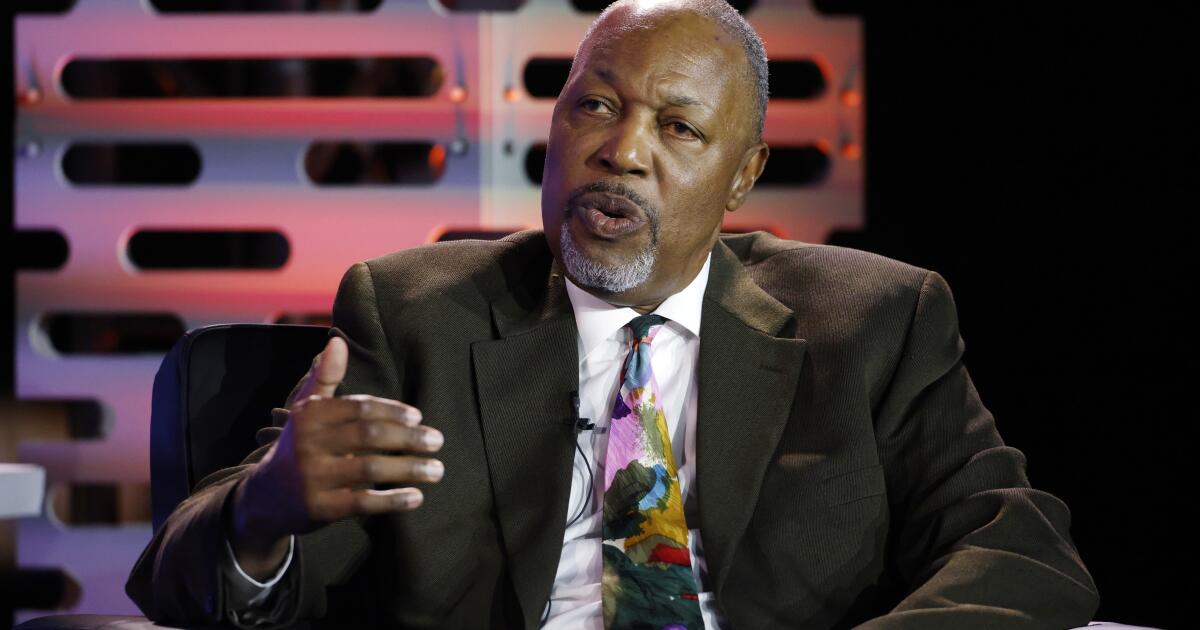Prep talk: Verbum Dei set to retire jersey of the late David Greenwood
David Greenwood, one of the best high school basketball players in Southern California history, will have his jersey retired on Friday night during a ceremony at his alma mater, Verbum Dei.
Greenwood, who died on June 8 at the age of 68 after a bout with cancer, teamed with Roy Hamilton to make Verbum Dei one of the best teams during his high school days in the 1970s. He’d go on to be an All-American at UCLA and played 12 years in the NBA. He came back to coach at Verbum Dei.
Verbum Dei is playing Gardena Serra on Friday at 7 p.m. The ceremony will be held at halftime.
Greenwood was the No. 2 pick in the 1979 NBA draft by the Chicago Bulls. Magic Johnson went No. 1 to the Lakers. He’d win an NBA championship with the Detroit Pistons.
He coached Verbum Dei to state championships in 1998 and 1999.
“David was a hero to me,” said Verbum Dei alumnus DeAnthony Langston. “He’s one of the all-time greats in Verbum Dei history.”
This is a daily look at the positive happenings in high school sports. To submit any news, please email eric.sondheimer@latimes.com.
